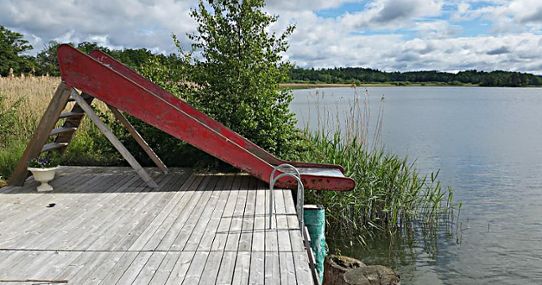The project entitled “Climate extremes for Sweden” will provide an overview of current knowledge concerning climate extremes in Sweden to facilitate work relating to climate adaptation. The project will also investigate whether there is a need for further research in order to develop new knowledge for use in climate adaptation. The project will also look at how the information is used in society in order to adapt to and limit the consequences of extreme events.
“Extreme weather and climate are part of human history. For those who are affected by extreme climate conditions such as droughts, it is not only the extreme events themselves, but the strength and scope of the event that is also critical. The vulnerability of the individual or the system and the ability to adapt to the new extreme conditions also has a role to play,” says Ralf Döscher. He is a researcher at SMHI and is leading the work on the report.

Involving users in the work
Researchers from SMHI are working on the project. A reference group will examine the perspectives of both research and trade and industry through bodies such as municipal authorities, county administrative boards and the Swedish National Knowledge Centre for Climate Change Adaptation at SMHI.
“We will be involving various users and organisations in the work, because different groups have different needs and requirements. The report will support Swedish users with knowledge which provides an updated overview of climate extremes and examples of effective ways of using the information to facilitate adaptation and mitigate climate impacts,” says Ralf Döscher.
The report primarily focuses on precipitation and droughts, but will also consider other extreme events developed in collaboration with users.
“Floods are important and users have also highlighted instances where several extreme situations occur either at the same time or in succession,” says Carin Nilsson, who is participating in the project from the consultancy firm Climate and Culture.
Work on the project is being carried out during 2018. In addition to researchers from SMHI, international research scientists and representatives from municipal authorities, county administrative boards, trade and industry are also participating in the project. The project is being funded by the Swedish Research Council Formas.